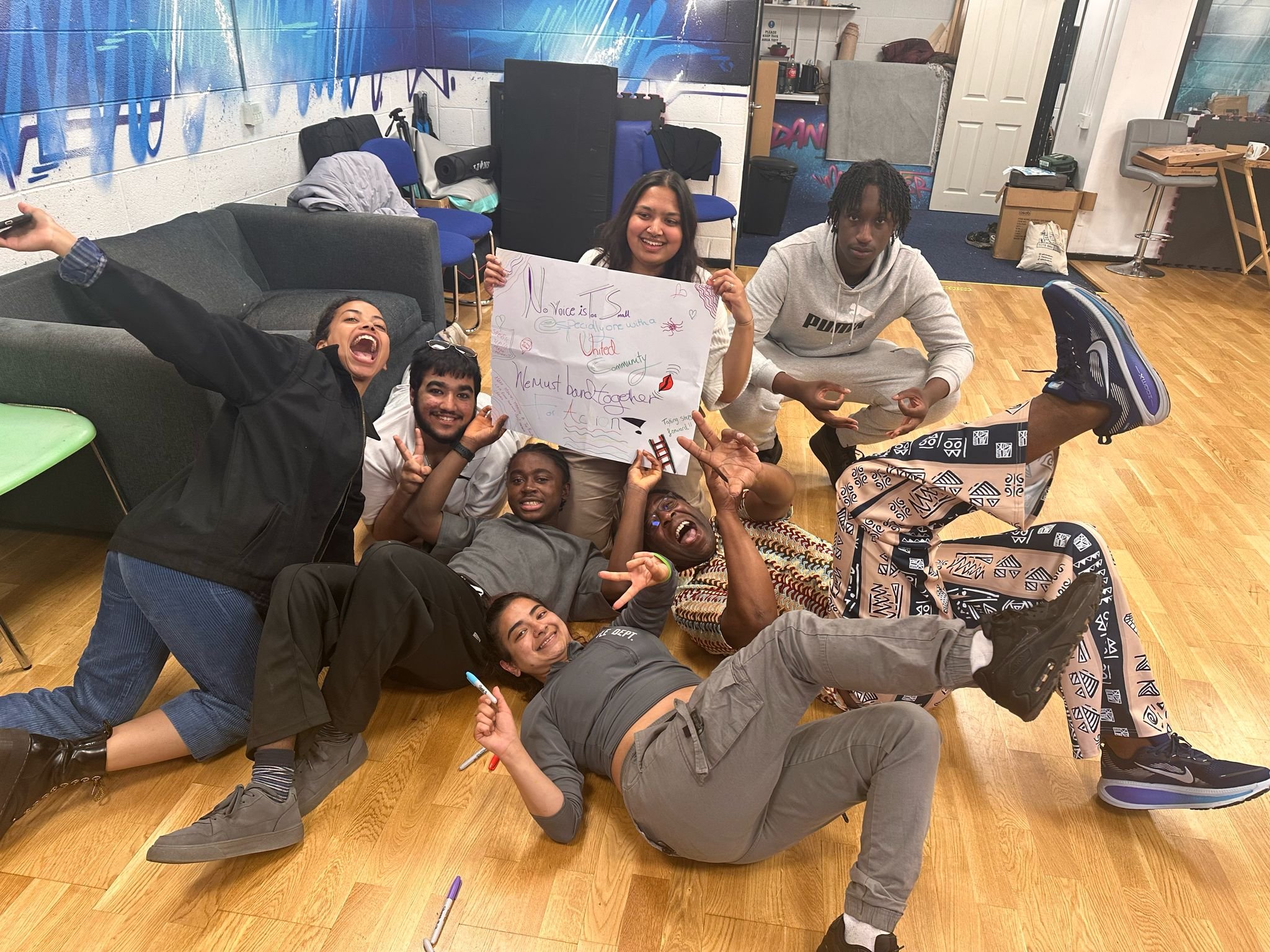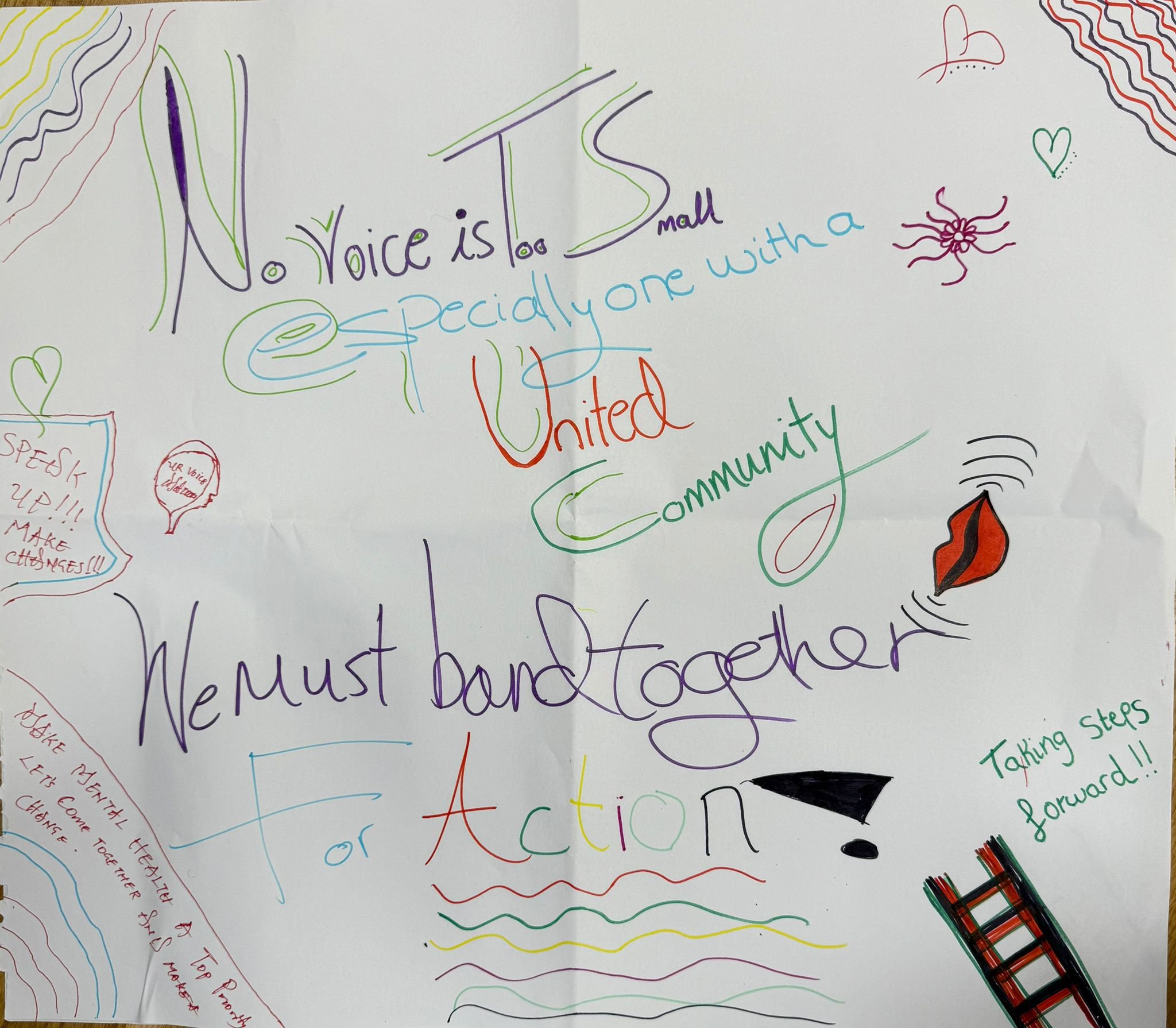Black Mental Health Manifesto-A Call to Action.
David Okoligan
“The workshop was the first time I had heard of the black mental health manifesto, and I was excited to learn more about it. This workshop gave me the opportunity to learn more about it. I learnt about how a new mental health bill needs to be passed to help and consider black Community and others better.”
Blog by: Alina Ali Psychology student at Salford University
In attending a black mental health workshop, I had to the privilege of meeting like-minded individuals and had conversations that matter. We discussed the need for a change. A change for better access of services for black and minority ethnic communities and discussing the disparities that exist within mental health services now.
In this workshop, we sat together, faces filled with concern and hope for a better future, and openly talked about a system that has failed us. It was empowering to hear the experiences and voices of people who want to make change. And to hear the hope in their voices for a better future. We all agreed that a change is essential, and that it is not impossible.
What is the Black Mental Health Manifesto?
Within this workshop we discussed the Black Mental Health Manifesto. This is a document that urges for specific issues to be addressed, including, but not limited to, the recommendation for Government to implement strategies to work with black led communities to co-design social prescribing. This includes connecting people with activities and groups to enable social, emotional and wellbeing needs are met. The use of social prescribing is a model of working that has been put into place, without the voices of People of Colour.
It calls to question, why is it, that some voices are not heard? The manifesto urges for reform of these types of initiatives and services to address the specific needs of Black People. We discussed the factors that affect many Black people, including the inequalities Black people face on a structural level, with many living in lower income households, have higher rates of unemployment as well as other factors that all contribute to higher levels of stress and poor mental health.
As a psychology student, I discussed how a large portion of my training to be a counsellor is based on personal and professional development, which from the influence of others- discussing experiences and practices. However, I’ve found these experiences do not necessarily reflect the views of many groups of people, including the cultural differences between people of different ethnic and racial backgrounds. People of colour find there is a lack of understanding of cultures, seen by shared experiences we had discussed. This can make it difficult to identify and fully explore mental health concerns.
What I found, is that each person had an experience of concern in the room. A concern of how they, or someone they know, has been affected by poor mental health or did not know how to access services, should their mental health declines.
Art is resistance, so we chose to create art. Because words are not enough. We worked on this to show the need for change, using drama and poetry to show just how important this topic is. The art made discussed essential topics such as domestic violence, immigration and human trafficking- which can deeply impact a person mental health. Not being able to access quality mental health services can negatively impact a person’s day to day life.
The art expressed how barriers faced from black people accessing these services create deep turmoil in an individual’s life. One that is emotional, generational, and structural. We were tired of being silenced. We chose to make art to show a glimpse why it is necessary to make a change. We used art to express a cry for help, urging for change- from clinics to parliament.
At the end of the day, we concluded that representation of all changes lives. And that no voice is too small to make change. We need a community, and spaces to feel comfortable and heard, which is not expressed enough in current mental health practices.
Main takeaway
The main takeaway from the discussion was the statement we made towards the end of the workshop;
“No voice is too small to be ignored, especially a voice with a united community.
We must band together for action”.
This a statement we made after many conversations, learning from each other, and
understanding the urgency for others to work together. We had a collective
understanding of what it means to be ignored. A mutual understanding that barriers are
layered and naming them is the start to breaking them down. This workshop was made,
not to vent, but to find strategies and learn from each other. To make art and
familiarising ourselves with the Black Mental Health manifesto. Health equity is a fight
for all. This workshop is only the start of progress to achieve this. A call to action.



